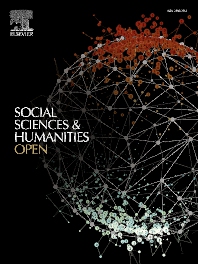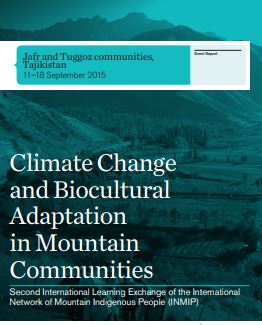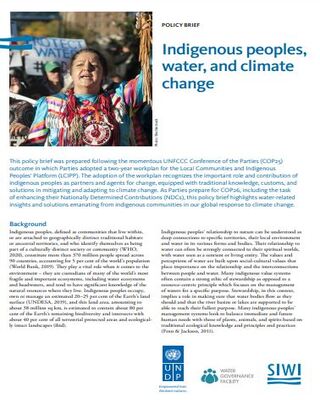The Traditional Knowledge Advantage: Indigenous Peoples’ Knowledge in Climate Change Adaptation and Mitigation Strategies
Publication Year: 2016
Author(s): Chianese F
Abstract:
Reliance on vulnerable ecosystems has made it possible for indigenous peoples to observe the effects of climate change first-hand for several decades. Certain communities report very visible indicators, such as the disappearing sea ice in the Arctic region, or the measurable disappearance of snow and ice surfaces in the Andean region. Others observe the impacts of warming weather, such as the disappearance of food sources or the appearance of new species. Agricultural traditional knowledge has proven to be an invaluable adaptation tool for indigenous peoples. In the Americas, indigenous peoples rely on a diversity of crops, varieties and planting locations to cope with excessive or low rainfall, drought and other environmental changes. This serves as a safety measure which ensures that, in the face of severe environmental change, some crops survive. Various adaptive strategies employed in areas that are subject to water stress build upon traditional indigenous peoples’ techniques of soil and water conservation.
Publisher/Organisation: International Fund for Agricultural Development (IFAD)
Theme: Traditional/ Indigenous Knowledge | Subtheme: Climate Change
Related Documents
Research Papers/Articles

Abstract:
Indigenous and rural peoples have developed close connections with land and nature for millenn... Read More
Reports

Climate Change and Biocultural Adaptation in Mountain Communities
Published Year: 2016
Abstract:
This report shows the potential of mobilising traditional knowledge for enriching the evidence... Read More
Research Papers/Articles

Indigenous People, Water, and Climate Change
Published Year: 2020
Abstract:
Indigenous peoples play a vital role when it comes to the environment – they are cu... Read More



